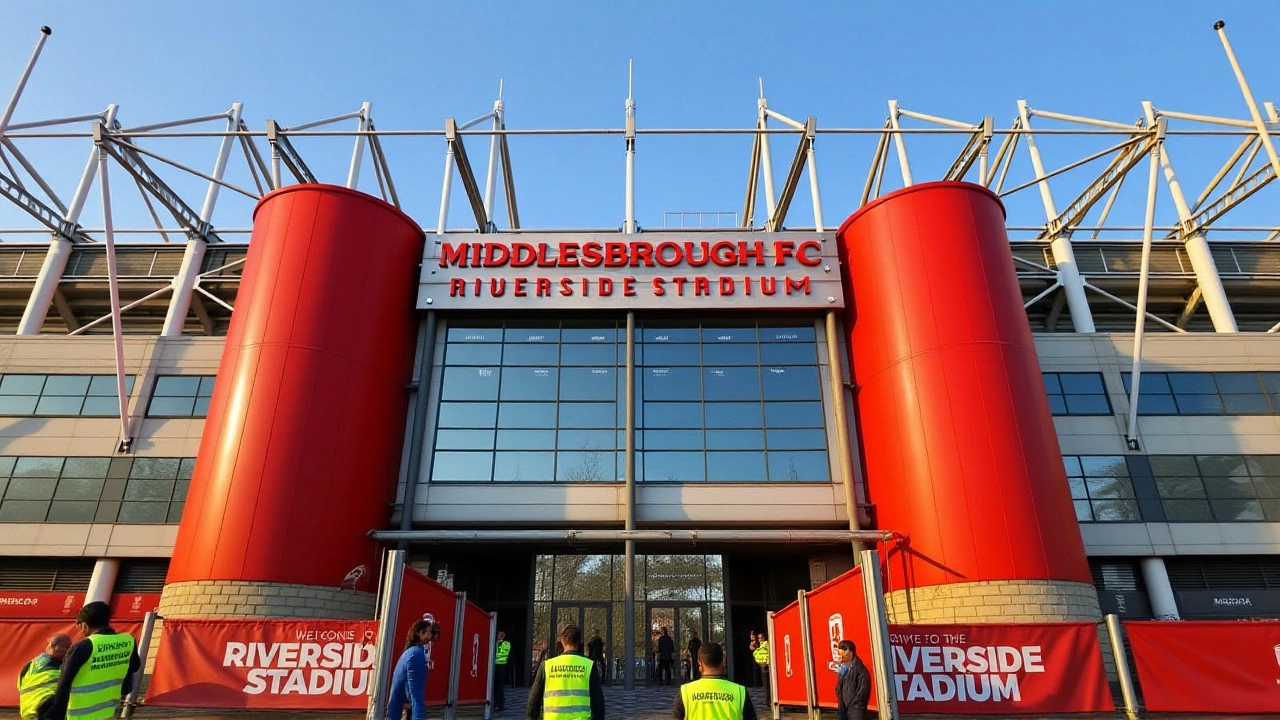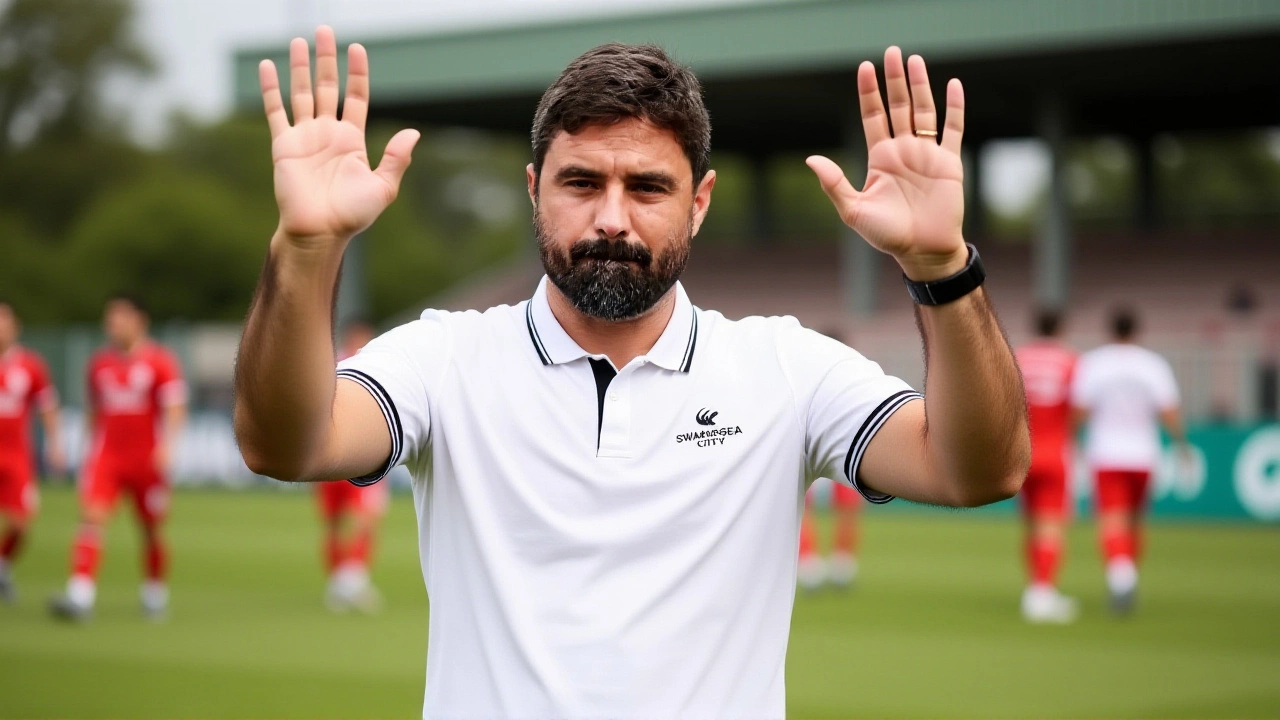Swansea City Association Football Club made a sudden and surprising move on Monday, November 11, 2024, dismissing Alan Sheehan as head coach just seven months after promoting him to the permanent role. The announcement, posted on the club’s official website, came without explanation, leaving fans, players, and analysts scrambling for answers. Sheehan, a 39-year-old Irishman and former professional defender, had been interim manager before being handed the reins in April 2024 — a decision that initially sparked cautious optimism among supporters weary of constant turnover. Now, he’s the latest in a long line of managers to be let go at the Swansea.com Stadium, a club whose instability behind the bench has become as predictable as its blue-and-white kits.
Midseason Shake-Up in the Championship
The timing couldn’t be worse for Swansea City. With the 2024-2025 EFL Championship season halfway through, the team sits just outside the playoff zone, having won just 4 of their last 12 matches. The club’s official statement, terse and formal, simply read: "The club and Alan Sheehan have mutually agreed to part ways with immediate effect." No mention of results. No reference to dressing room tensions. No nod to tactical missteps. Just silence. That’s the way it’s been in Swansea for years — decisions made in boardrooms, not on training pitches.Oddly enough, while the club claimed Sheehan served seven months, AOL.com reported "just over six months." The discrepancy matters less than the pattern: Swansea’s head coaches rarely last beyond a calendar year. Since 2020, the club has cycled through five permanent managers — including Steve Cooper, Russell Martin, and now Sheehan — each brought in with fanfare, each gone before the season’s end. The revolving door has become a defining feature of this club’s identity.
Who Is Alan Sheehan — And Why Did He Last This Long?
Sheehan wasn’t a flashy hire. No pedigree from the Premier League. No famous name. He’d managed in Ireland’s League of Ireland and spent time as a coach at Leeds United’s academy. What he had was grit, organization, and a reputation for getting the most out of limited resources. Under his leadership, Swansea showed signs of defensive solidity — they conceded fewer goals in October than any other month this season. But goals were scarce. They scored just 14 in 16 league games under his tenure. That’s not a recipe for survival in a division where 15 teams are fighting for promotion.His interim period in January 2024 had been a surprise success. A 3-1 win over Preston, a gritty 1-0 victory over Millwall — those results gave the board hope. They promoted him in April, betting he could build something sustainable. But the summer signings — a £2 million striker who never scored, a midfield recruit who looked lost in the Championship’s physicality — undermined his work. By November, the squad looked tired, directionless. Fans began chanting for change. The board listened.
Analyst Reactions: Was It the Right Call?
Football analyst Benjamin Bloom, known for his deep-dive breakdowns on the EFL Championship, posted a YouTube video titled "Swansea SACK Sheehan: Was it the Right Decision?" just days after the dismissal. Bloom argued that while Sheehan’s tactical setup was sound, his inability to adapt — especially against high-pressing teams — was fatal. "He was a manager for the lower half of the table," Bloom said in his analysis. "But Swansea didn’t want to survive. They wanted to climb. And that requires a different kind of leader."Others, however, pointed to the club’s lack of investment. "You can’t expect a coach to turn a team around with a £5 million transfer budget and no youth development pipeline," said one former Swansea academy coach, speaking anonymously. "Sheehan was the only one trying to play proper football. The board just wants a quick fix."
The club’s own structure — with separate departments for the First Team, Women’s team, Academy, and Foundation — suggests a sophisticated organization. But the disconnect between those units is glaring. The Academy produces talented players like Jayden Bogle and Koby Arthur, yet they rarely make the first team. Why? Because the manager doesn’t have the trust — or the time — to develop them.

What Happens Now?
No interim coach has been named. No search committee has been announced. The club’s website, usually updated within hours of news, went quiet after the statement. That’s unusual. Most clubs name a caretaker within 24 hours. Swansea’s silence suggests internal chaos — or worse, a lack of consensus on what kind of manager they even want.Names being floated in the media include former Cardiff City boss Neil Harris and ex-Brentford assistant John Eustace. Both have Championship experience. But neither has proven they can handle the pressure cooker at Swansea. The club’s next manager will inherit a squad that’s mentally drained, a fanbase that’s disillusioned, and a board that’s already looking ahead to the next scapegoat.
A Legacy of Instability
Swansea City’s history is one of highs and brutal lows. They reached the FA Cup final in 2013. They played in the Premier League for six seasons. But since their relegation in 2018, they’ve become a cautionary tale in English football. Too many owners. Too many managers. Too many broken promises. The club’s Foundation runs youth programs in underserved neighborhoods. The Academy has produced international talent. Yet the First Team? It’s a revolving door of short-term fixes.Alan Sheehan won’t be remembered as a transformative figure. But he might be remembered as the last coach who tried to do things the right way — patiently, systematically — before the board pulled the plug. And that’s the real tragedy here. Not that he was sacked. But that, in Swansea, even good intentions aren’t enough.
Frequently Asked Questions
Why was Alan Sheehan dismissed after only seven months?
Swansea City gave no official reason, but performance metrics suggest the issue was scoring: just 14 goals in 16 league games under Sheehan. The club’s board, under pressure from fans and investors, prioritized offensive output over defensive structure — a pattern seen in past dismissals. His interim success in early 2024 raised expectations, but the summer transfer window failed to deliver the attacking talent needed to sustain promotion hopes.
Who might replace Alan Sheehan as head coach?
Names like Neil Harris and John Eustace are being discussed, both with Championship experience. However, the club’s lack of an interim appointment suggests internal disagreement over direction. A more radical hire — such as a young, data-driven coach from lower leagues — could be possible, but Swansea’s history favors safe, familiar options. The next manager will likely be chosen quickly, not carefully.
How does this affect Swansea City’s promotion chances?
Swansea currently sits 11th in the EFL Championship, five points outside the playoff spots. With a managerial vacuum and no interim coach, training and tactical preparation have stalled. The next five fixtures include matches against promotion rivals like Sheffield United and Middlesbrough. Without immediate stability, their chances of climbing into the top six are now slim — possibly less than 20%, according to football analytics models.
Has Swansea City ever recovered from a managerial sacking mid-season?
Rarely. After sacking Steve Cooper in 2021, they appointed Russell Martin, who led them to the playoffs in 2022 — but only after a 10-game winless streak. In 2023, the dismissal of Russell Martin led to a 14-game winless run under interim boss Steve Cooper (returned briefly). The pattern shows short-term chaos, not long-term improvement. Midseason changes rarely fix deeper structural problems — especially when the board doesn’t invest in the squad.
What role does the Swansea.com Stadium play in this situation?
The stadium isn’t just a venue — it’s a symbol. With a 21,000-seat capacity, it’s one of the smallest in the Championship, yet the club expects Premier League-level results. The financial constraints of operating in a smaller market amplify pressure on managers to deliver quick wins. When fans boo, the board hears it as a mandate to fire — not as a call for better recruitment. The stadium’s size reflects the club’s ambition: big dreams, small resources.
Is this part of a larger trend in the EFL Championship?
Yes. Of the 24 teams in the Championship, 15 have changed managers since the start of the 2023-2024 season. But Swansea stands out: they’ve had five permanent managers in just four years. Other clubs like Nottingham Forest and Burnley have stability because they invest in long-term planning. Swansea’s model is reactive — hire, fail, fire, repeat. It’s a cycle that drains morale and keeps the club stuck in mid-table purgatory.

Author
Maverick Leclair
Hi, I'm Maverick Leclair, a sports enthusiast with a passion for motorsports. I've spent years honing my expertise in various sporting disciplines, but my true love lies in the adrenaline-pumping world of racing. As a writer, I enjoy sharing my insights and experiences with fellow fans of high-speed pursuits. From Formula 1 to MotoGP, I've got you covered with the latest news, analysis, and in-depth features. Join me as we explore the fascinating world of motorsports together.